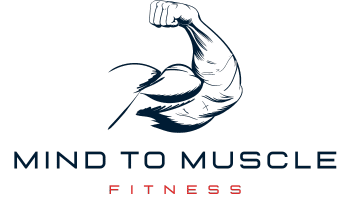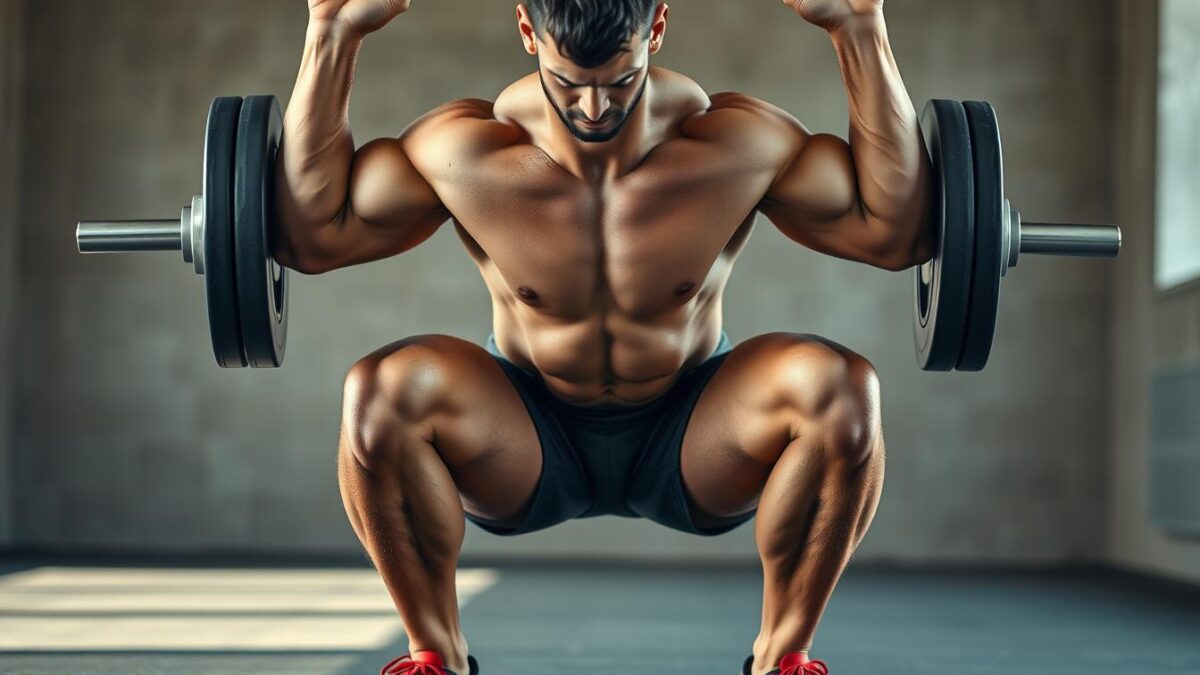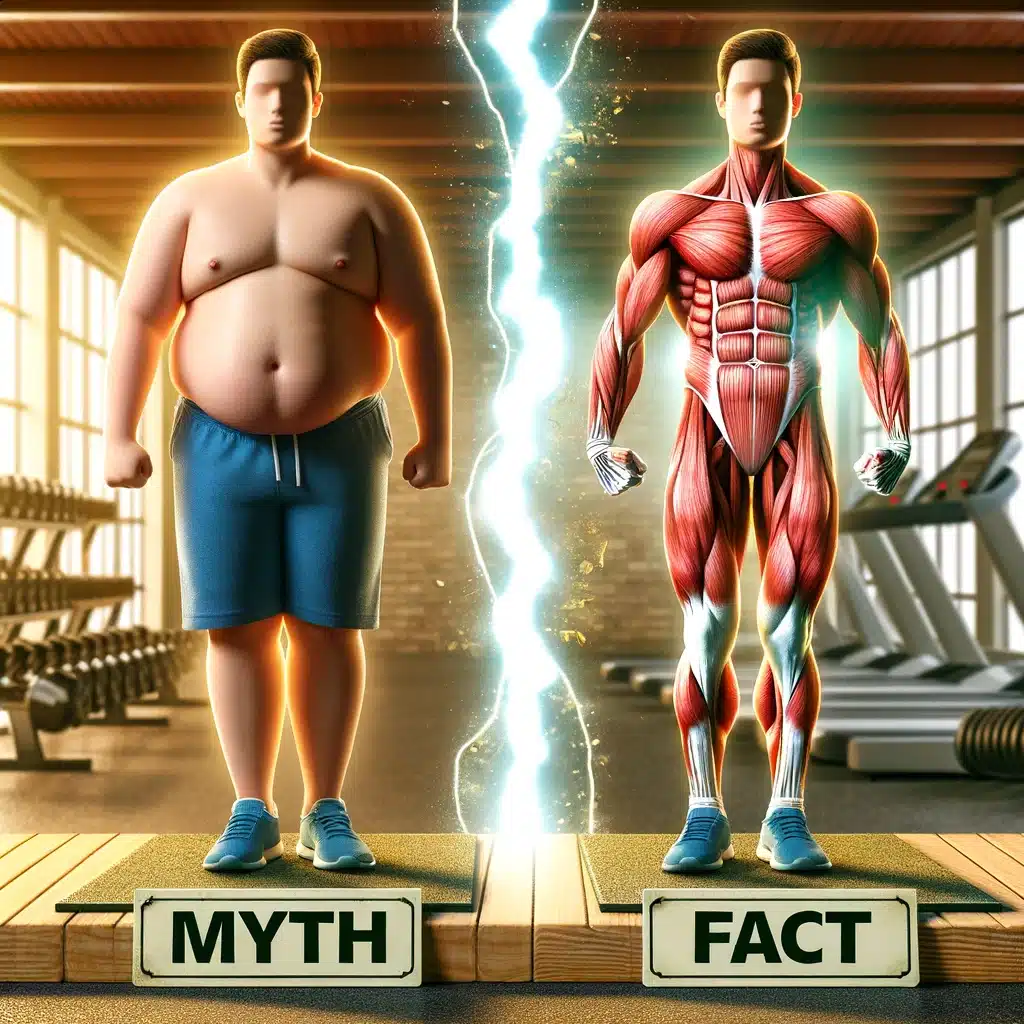
Debunking Common Bodybuilding Myths
Have you ever wondered if it’s possible to change fat into muscle? Or if what you know about bodybuilding is actually true?
In the world of bodybuilding, myths and wrong information are everywhere. Whether you’re just starting or have been doing this for a while, you’ve probably heard a lot of myths. All these myths make it hard to know what’s real about workouts, food, and supplements. I’m here to help clear up these myths. You’ll leave this section knowing the truth and ready to take on bodybuilding without the myths. Let’s start by separating what’s true from what’s not.
Key Takeaways
- Understand the difference between bodybuilding facts vs myths.
- Acknowledge the psychological impact myths can have on beginners.
- Learn the truth behind the idea of turning fat into muscle.
- Explore the historical context of popular bodybuilding myths.
- Get ready to challenge your beliefs about workout routines and nutrition.
Understanding the Basics of Bodybuilding
Laying out the real facts in bodybuilding is key for those starting their fitness journey. The world of fitness is full of myths. Knowing the truth can save you time, effort, and keep you safe. We’ll explore what it takes to start your path in bodybuilding.
Importance of Knowledge
Holding the right information is fundamental for bodybuilding. Otherwise, you might fall into myths. True facts let you craft effective workouts that are safe. Top bodybuilders like Arnold Schwarzenegger stress knowing the science. With the right knowledge, you avoid myths and work towards real results.
Building a Solid Foundation
Getting a strong foundation in training and nutrition is crucial for lasting growth. This means knowing your food needs and what muscles different workouts hit. Stick to what’s proven and leave the myths behind. NASM and nutritional science guides offer tips for building muscle well.
Here’s a side-by-side of common bodybuilding myths and the real facts to guide you:
| Myth | Fact |
|---|---|
| Turning fat into muscle | You can’t turn fat into muscle. Instead, focus on building muscle and losing fat through a good diet and workout. |
| More protein equals more muscle | Extra protein doesn’t help more; finding a balance is crucial. |
| Spot reduction is possible | You lose fat all over, not just in one spot. |
Use certified info and tactics to build a strong base for your muscle growth journey. Always remember, knowing the facts is powerful, especially in bodybuilding.
Myth: Lifting Heavy Weights Will Make You Bulky
Some think that lifting heavy weights makes you too bulky. This idea has scared off many, especially women, from heavy lifting. But science and experts say otherwise.
Muscle growth doesn’t just happen from lifting heavy. It needs right nutrition and enough rest too. What makes you bulky is a mix, like your genes, how much you eat, and your training plan.
Fitness greats like Arnold Schwarzenegger and Ronnie Coleman show that big muscles need focused work. Just lifting heavy doesn’t mean you’ll be huge. Science backs this up, calling it a debunked myth.
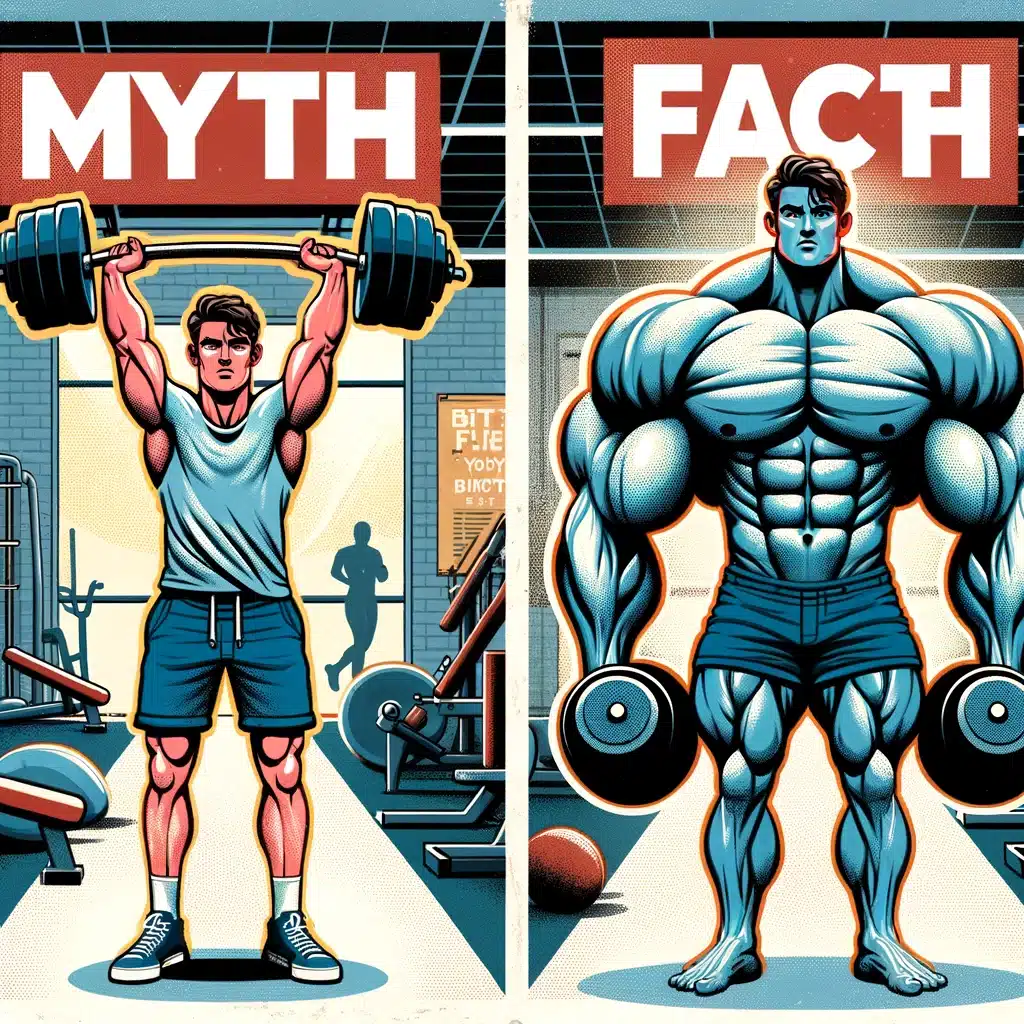
Lifting heavy is great for getting stronger without getting significantly bigger. Top athletes and experts use this to get better at their sports. So, the fear of getting too big from heavy lifting is not true.
Let’s look at some important facts:
- Training Volume and Frequency: More important than how heavy you lift is how often and how much you train.
- Genetic Factors: Your genes decide a lot about how your body grows from lifting weights.
- Dietary Influence: Eating right, especially enough protein and calories, is vital for gaining muscle.
So, don’t be scared of lifting heavy if you don’t want to get too muscular. It’s essential for improving your body and being strong. Let’s let go of these old ideas and use modern, smart training methods for better fitness and strength.
Separate Fact from Fiction: Protein Intake
Protein intake in bodybuilding often sparks myths. Some believe you need tons of protein to see gains. Others think precise timing is key. It’s crucial to know the right amounts and when to eat them. This insight can really help your bodybuilding efforts.
Recommended Protein Amounts
Debunking a common myth in bodybuilding, you don’t need heaps of protein to grow muscles. Your daily protein needs depend on your weight, how active you are, and your goals. Normally, it’s suggested you eat between 1.6 to 2.2 grams of protein per kilogram you weigh.
For example, if you weigh 70 kilograms, your daily protein goal is around 112 to 154 grams. This amount is enough to boost muscle repair and growth. You don’t have to eat crazy amounts to see results.
Protein Timing and Absorption
One prevalent myth is the ‘anabolic window,’ where it’s said you must consume protein right after a workout. Now, we know the truth is protein can be absorbed well over time. It’s okay to spread your protein intake throughout the day.
Eating protein regularly keeps your muscles fueled for repair and growth. Try to have meals or snacks with 20-30 grams of protein spaced out during the day. This approach works better for building muscles than eating a lot at once.
Bodybuilding Myths: Spot Reduction
One big myth in bodybuilding is spot reduction. It claims you can lose fat in certain spots by working those areas. In reality, your body loses fat as a whole, not just where you work out.
The Truth About Fat Loss
Doing a lot of crunches won’t just shrink your stomach. When you burn more calories than you eat, your body uses stored fat for energy. This happens everywhere, not just in the muscles you’re focusing on.
Effective Ways to Reduce Fat
Instead of trying to work out specific areas, focus on losing weight overall. This means eating well, doing both cardio and strength exercises, and getting enough rest. By taking this broad approach, you’ll see better results than doing targeted workouts.
- Follow a balanced diet with a caloric deficit.
- Combine cardio and strength training regimens.
- Ensure proper rest and recovery.
Understanding how fat loss really works will help you steer clear of common myths. It allows you to follow advice that’s backed by strong, scientific evidence towards reaching your fitness goals.
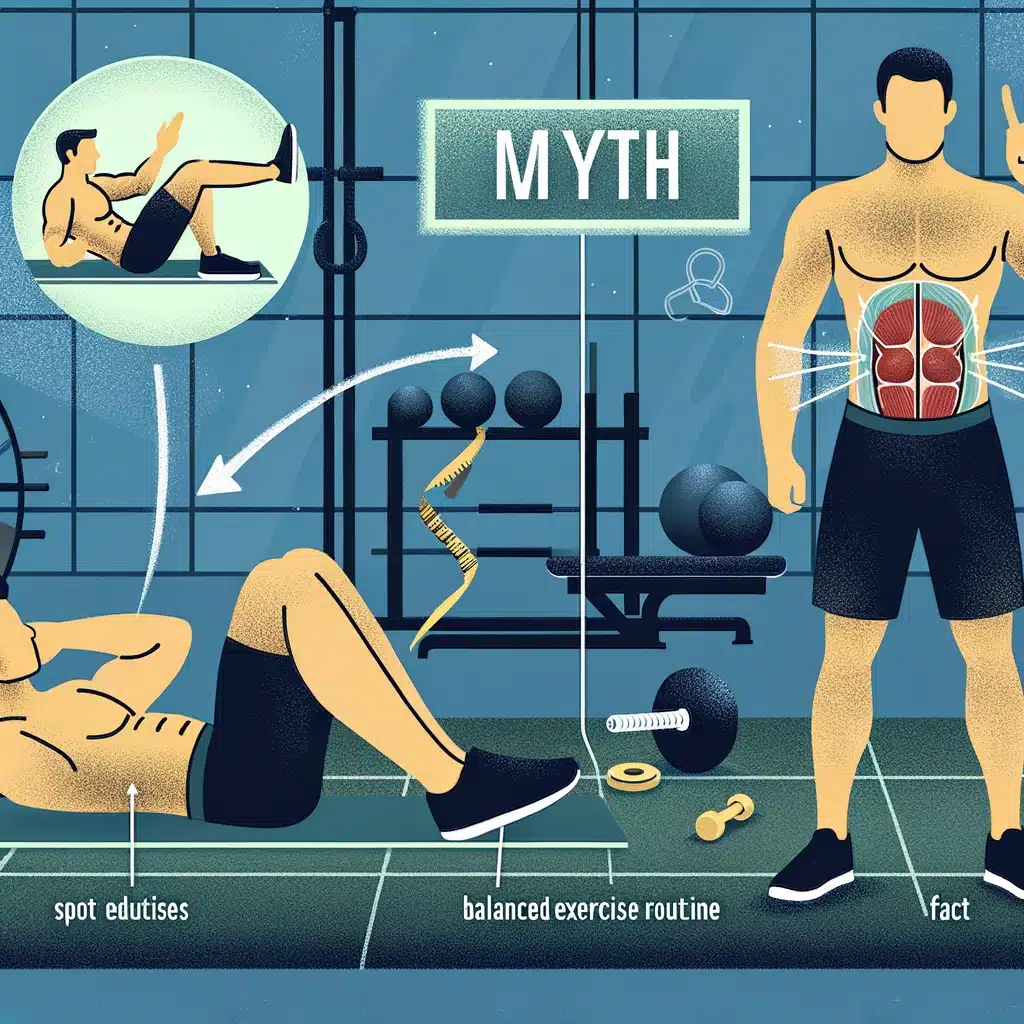
Supplements: What You Really Need
In the world of bodybuilding supplements, it’s hard to know what you truly need. It’s easy to get lost in all the marketing. This confusion makes it important to know which supplements really help your workout.
Many supplements claim they can help you gain muscle, boost your stamina, and recover fast. But, only a few actually hold up when tested scientifically. Let’s explore the key supplements that have strong evidence behind them:
- Protein Powders: They are highly recommended because they help repair and grow muscle by meeting your daily protein requirements.
- Creatine: It’s known to boost muscle size, strength, and overall performance, widely used by bodybuilders.
- Branched-Chain Amino Acids (BCAAs): These aid in muscle repair, lessen fatigue from exercise, and are key during challenging training phases.
- Omega-3 Fatty Acids: They are crucial for fighting inflammation and maintaining heart health, important for your overall wellness.
- Multivitamins: They fill in any diet gaps, supporting your body’s various functions needed for intense training.
The key bodybuilding supplements are those with proven benefits and support from professionals and studies. By reviewing customer experiences and scientific data, it’s clear that specific supplements can make a big difference in your fitness and recovery. These supplements include protein powders, creatine, and branched-chain amino acids (BCAAs), which have consistently shown to enhance muscle growth and improve recovery times. However, it’s essential to approach supplements with caution and fully understand their potential impacts, particularly for hormone-related products. For example, when evaluating hormone support supplements, understanding ‘estrogen blockers side effects explained‘ in detail can help users make safer and more informed decisions about their use.
Here’s a simplified look at the most effective and necessary supplements:
| Supplement | Purpose | Scientific Support |
|---|---|---|
| Protein Powders | Muscle Repair & Growth | Strong |
| Creatine | Strength & Performance | Very Strong |
| BCAAs | Muscle Recovery | Moderate |
| Omega-3 Fatty Acids | Inflammation & Heart Health | Strong |
| Multivitamins | Nutritional Gaps | Moderate |
Knowing the truth about bodybuilding supplements enables wiser decisions, ensuring you gain real benefits from your investment. Stick to the essential supplements to maximize the results of your workout journey.
Conclusion
We have journeyed through the labyrinth of bodybuilding myths debunked and discovered a big difference. There’s a gap between what people often think and what science tells us. Misconceptions, like needing to “train like a bodybuilder,” can mislead even the most hardworking gym fans. But knowing the truth, such as the myth that “low reps are for size and high reps are for cutting,” helps us choose better fitness paths.
Knowing who to trust with fitness advice is a key lesson. It’s shown that guidance from unqualified “experts” or following trends pushed by supplement firms and old magazine stories can lead us astray. The wisdom of the “big guy at your gym” might not always be wise. Instead, it’s important to educate yourself with reliable, fact-based information.
We’ve also tackled myths about nutrition, such as the idea that you should throw away the yolk and only eat the whites. Or that carbs and fats should never mix in the same meal. A diet supported by solid science, proper exercise, and rest is vital. Plus, we’ve learned that longer workouts or excessive crunches don’t always get us far. And just because you’re sore, it doesn’t mean you’re growing.
Stay skeptical of too-good-to-be-true claims and put your health first. Whether it’s the myth that “protein shakes on off days make you fat” or that “muscles turn to fat if you stop training,” verify the info. The effort to dispel bodybuilding myths {bodybuilding myths busted} is ongoing. It’s about committing to keep learning and getting better day by day.
